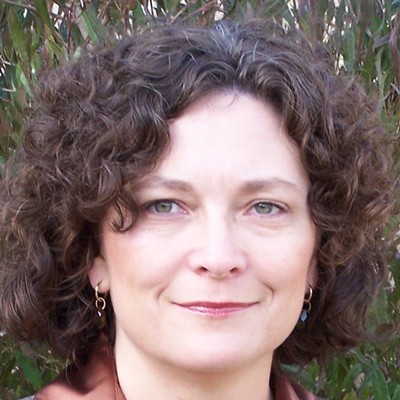It's difficult to grasp the ways unleashed nuclear weapons can forever alter personal and geographic landscapes.
But five people whose stories of life following the Nagasaki bombing of 1945 are featured in a new book by Tempe author Susan Southard know all too well the horrors of nuclear weapons. All five were teenagers at the time — and felt its effects in a myriad of ways from significant medical problems to stigma.
Southard is the founder and artistic director of Essential Theatre, a company that specializes in “interactive, improvisational performances” that incorporate the stories of audience members’ lives. She was a nonfiction fellow at the Norman Mailer Center in Massachusetts and a finalist for the J. Anthony Lukas Work in Progress Award, which is sponsored by the Neiman Foundation at Harvard University and the Columbia School of Journalism.
She was 16 years old before she heard the history of Nagasaki. A high school junior who traveled from her New York home to Japan for a student exchange program, she’d joined Japanese students for a field trip to Kyushu, the southernmost main island of Japan where the city of Nagasaki is located.
She recalls spending a few hours with her schoolmates at the Nagasaki Atomic Bomb Museum, and Southward says she was “quite astounded” to learn of the impact of the bomb that fell at 11:02 a.m. on August 9, 1945 — just three days after the United States bombed Hiroshima.
America dropped the atomic bomb at Nagasaki, too. “I was the only American in the crowd,” she recalls of her time at the museum. “I was overwhelmed by its power and the suffering."
Years later, while living in Washington D.C., Southard went to hear a 57-year-old Nagasaki survivor named Taniguchi Sumiteru speak about his experience. “I speak Japanese,” she explains, “so I went up afterwards to meet him.”
She ended up being his translator for a few days, and they had plenty of conversations during their down time — during which he shared intimate details of his experiences in the aftermath of the bombing.
He was 16, working as a postal delivery boy, when the bomb was dropped. At the time, says Southard, students over the age of 14 had to quit school and work for the war effort. He was riding his bike away from what became the blast area that morning.
More than a mile from the blast, he was hurled off his bike. The heat it generated burnt the clothes off his torso — badly burning his back and part of an arm. For months, says Southard, survivors in Nagasaki couldn’t get medical care.
That November, he was taken to a naval hospital 22 miles north of the city, where he remained for three years. “I was just completely inspired by his story and the way he related it,” says Southard.
Now he’s one of five Nagasaki survivors whose experiences are featured in Southard’s book, described by the publisher as a “powerful study of a post-atomic bombed city.”
Nagasaki: Life After Nuclear War goes on sale July 28, just weeks before the 70th anniversary of the event. It’s a book 12 years in the making, says Southard, who will share a bit about the process of writing the book – which included five trips back to Nagasaki — during a July 28 appearance at Changing Hands Bookstore in Tempe.
She’ll be reading excerpts from the book, making a presentation, and doing a Q&A with audience members.
“This is really the first book in English that tells a story of the long arc of nuclear survival over seven decades,” says Southard. “It’s a really neglected story and a really important story.”
Its themes are relevant to current treaty efforts with Iran, Southard adds. “When we think of nuclear weapons we have a vague impression of what they do,” she says. “Survivors offer us the specificity.”
Susan Southard: Nagasaki: Life after Nuclear War, which is being filmed by C-SPAN’s Book TV, takes place at 7 p.m. on Tuesday, July 28. Find more information on the Changing Hands Bookstore website.
Follow Jackalope Ranch on Facebook, Twitter and Pinterest.
[
{
"name": "Air - MediumRectangle - Inline Content - Mobile Display Size",
"component": "18478561",
"insertPoint": "2",
"requiredCountToDisplay": "2"
},{
"name": "Editor Picks",
"component": "16759093",
"insertPoint": "4",
"requiredCountToDisplay": "1"
},{
"name": "Inline Links",
"component": "17980324",
"insertPoint": "8th",
"startingPoint": 8,
"requiredCountToDisplay": "7",
"maxInsertions": 25
},{
"name": "Air - MediumRectangle - Combo - Inline Content",
"component": "16759092",
"insertPoint": "8th",
"startingPoint": 8,
"requiredCountToDisplay": "7",
"maxInsertions": 25
},{
"name": "Inline Links",
"component": "17980324",
"insertPoint": "8th",
"startingPoint": 12,
"requiredCountToDisplay": "11",
"maxInsertions": 24
},{
"name": "Air - Leaderboard Tower - Combo - Inline Content",
"component": "16759094",
"insertPoint": "8th",
"startingPoint": 12,
"requiredCountToDisplay": "11",
"maxInsertions": 24
}
]











